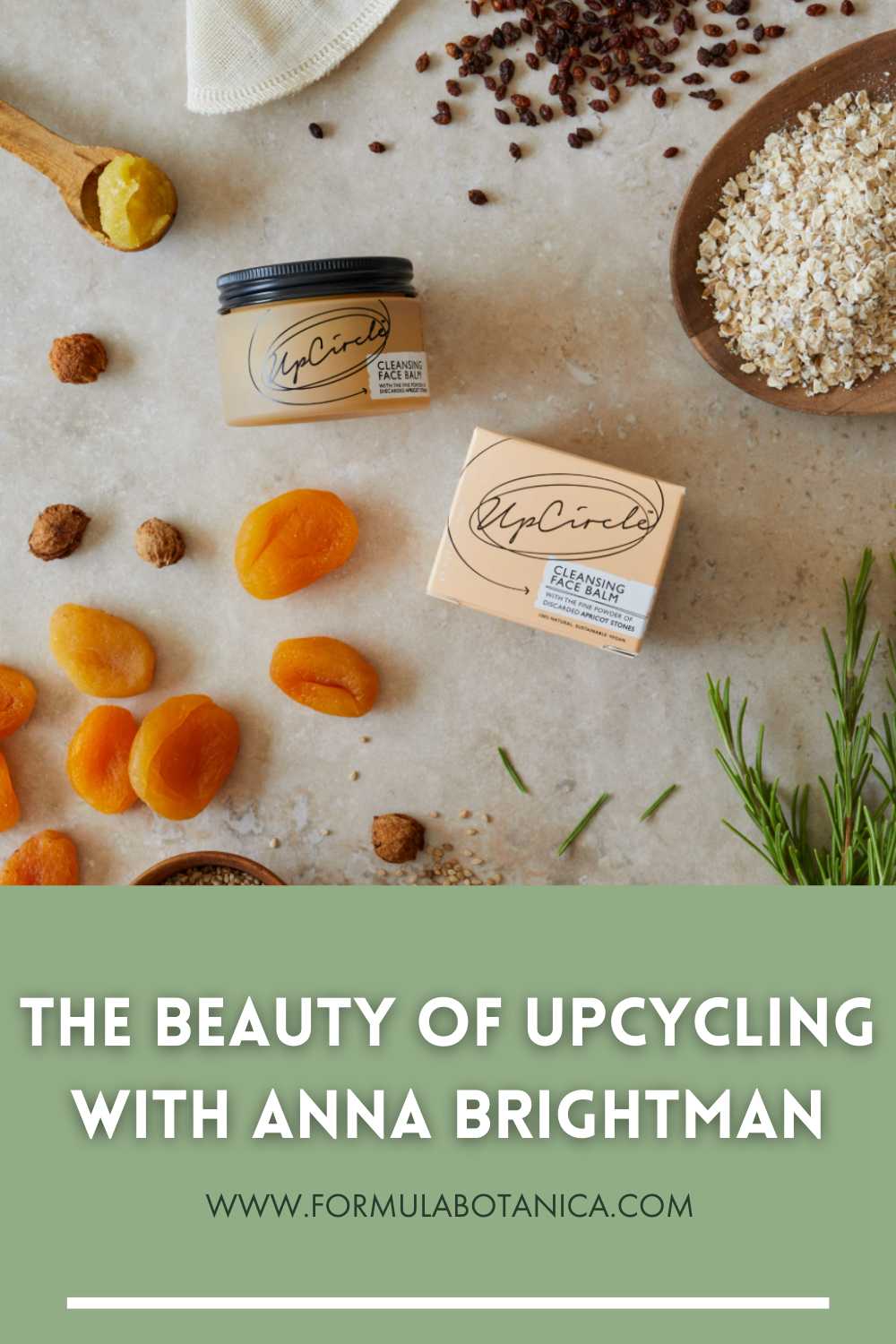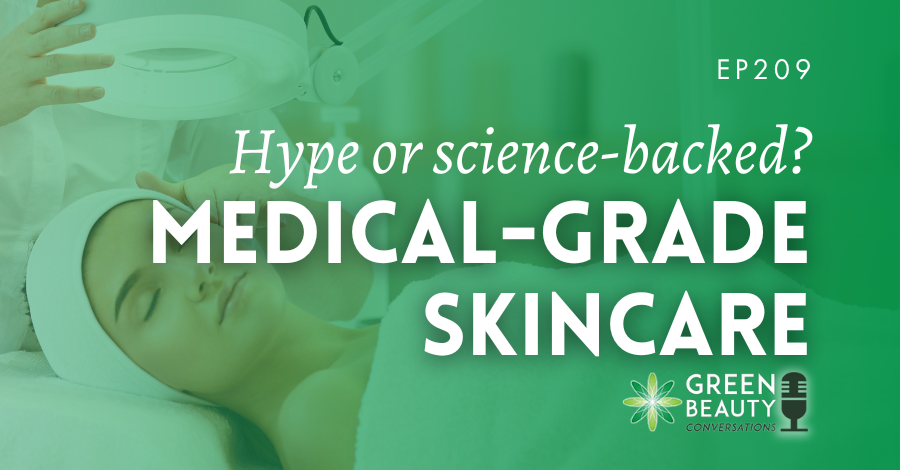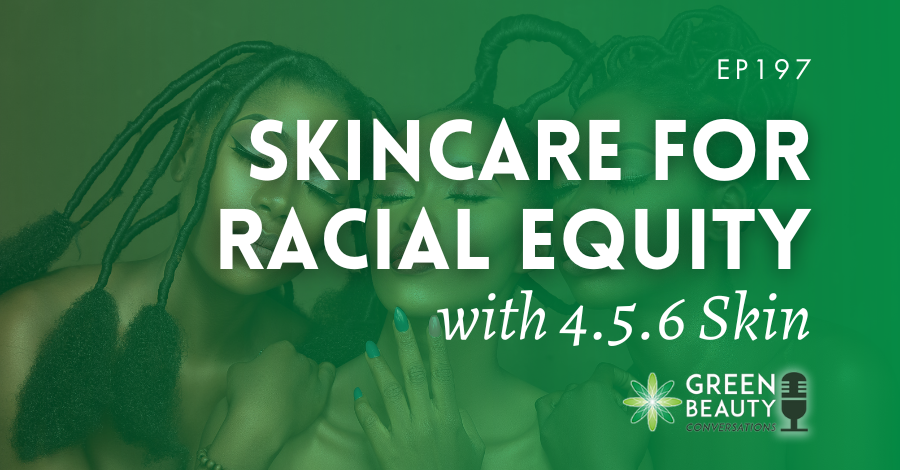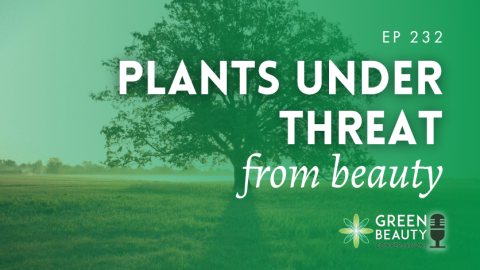Think of upcycled beauty and you probably think of DIY home formulators mixing up a body scrub or face mask from kitchen store cupboard ingredients. You may have even tried using left-over coffee grounds as scrub particles. But it takes brave, inspired and curious minds coupled with phenomenal drive and business sense to turn waste coffee grounds into a global and sustainable beauty business in just four years. Our guest in this episode did just that, and more, by upcycling organic waste and redundant by-products from food and drinks’ industries into star ingredients in a line of natural, sustainable cosmetics.
In this podcast, we hear from Anna Brightman, co-founder along with her brother Will, of Upcircle Beauty which launched in 2016 with the vision of “..leaving the world better than they found it” by finding useful, profitable purposes for others’ waste. There’s treasure in waste and Upcircle Beauty is proof that this old saying rings true.
The siblings discovered that more than 500,000 tonnes of coffee grounds that are consumed each year in the UK alone are sent to landfill. They decided to start collecting the coffee grounds from cafes across London and transforming them into their sustainable skincare range. Since their launch four years ago, the brand has saved over 275 tonnes of coffee waste. By the time we interviewed Anna, Upcircle were upcycling 10-plus food and other botanical by-products and were set to launch a further three products to add their impressive range of over 40 variations of exfoliants, moisturisers, serums and masks.
At first, investors and others in the beauty industry were sceptical and doubted that an industry as fickle as beauty would grasp the concept of upcycled ingredients let alone embrace it. But Anna, Will and their growing staff along with a dedicated network of upcycling partners in the food and drink sector have successfully upscaled to sustain a British-based operation selling beauty products into 800 retailers in the US alone.
Formula Botanica CEO and podcast host Lorraine Dallmeier, a Chartered Environmentalist who has a passion for delving into sustainability, spoke to Anna Brightman about the challenges of building a business that relies on difficult, often messy waste by-products and where Upcircle find inspiration for new products from new sources of waste. Whether a beauty consumer or natural formulator, you’ll find this an inspirational listen about a company truly pioneering circular and by-product beauty.
Waste is only waste if it's wasted! The @FormulaBotanica podcast talks to @Upcirclebeauty co-founder Anna Brightman about turning food industry trash into skincare treasures. #circularbeauty #upcycling #naturalformulation Share on XIn this episode on upcycled beauty, you will:
- Learn the two definitions of an upcycled ingredient.
- Discover that upcycled waste and by-products, despite first impressions, can provide the beauty industry with innovative, reliable and sustainable ingredients.
- Find out that the most important attributes beautypreneurs need in looking for innovative waste by-products to upcycle are imagination, curiosity and determination to research and pioneer their viability.
- Learn that using upcycled ingredients is a huge step for a business wanting to grow along sustainable principles, but that business owners needs to take a rain check also on how sustainability is factored into other aspects of their operations.
Key take-outs include:
- If you are green beauty entrepreneur, look around you actively for inspiration for upcycled waste. For example, Anna Brightman is now working on how to upcycle flowers and plants into cosmetic ingredients after she noticed local florists discarding them.
- Think laterally about how to work not just with the end waste, but also with local farmers and other businesses to provide a win-win for both of you. For instance, Upcycle has helped other industries profit by working with them and training their staff on how to process their waste or by-products for cosmetic ingredients.
- If you want to scale your business and need to rely on sources of upcycled ingredients, think about which industries or venues are already producing that waste product in volume. For instance, hotel chains might be throwing away in bulk a particular waste product you have your eye on.
- Be prepared to do a lot of research and experimentation when using upcycled ingredients you source. Not all will work. Anna mentions that only certain type of coffee grounds suit their products. It takes perseverance and you need to build good relations with your source industries.
Meet our Podcast Guest
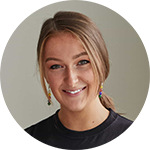
In 2018 Optiat successfully crowdfunded, followed by a successful appearance on the UK TV show “Dragons’ Den”, receiving offers from three dragons. Optiat rebranded to UpCircle Beauty, launching new product ranges including soap bars made with brewed chai tea spices and a nourishing face range made with upcycled powdered fruit stones. They have now launched into Boots, Sainsbury’s, Revital, House of Fraser, Ocado, Farmdrop, Feel Unique and As Nature Intended and expanded distribution to America and Australia.
Special Discount
Upcircle Beauty is kindly offering Formula Botanica students, followers and podcast listeners a special discount. Please use the code GREENBEAUTY20 at checkout on the Upcircle website for 20% off (valid on any items which are not already discounted, i.e. Bundles).
Follow Upcircle Beauty:
Website: Upcirclebeauty.com
Instagram: @upcirclebeauty.com
Thank you for joining us for this episode of the Formula Botanica Green Beauty Conversations podcast. If you enjoyed listening, please share, subscribe and review this episode on Apple Podcasts, Spotify or Youtube so that more people can enjoy the show. Don’t forget to follow and connect with us on Facebook and Instagram.
FREE TRAINING
Learn how to become an
Organic Skincare Formulator
FREE TRAINING
How to become an
Organic Skincare Entrepreneur
FREE TRAINING
How to become an
Organic Skincare Entrepreneur
Leave us a comment
Lorraine Dallmeier is a Biologist, Chartered Environmentalist and the CEO of Formula Botanica, the award-winning online organic cosmetic science school. Read more about Lorraine and the Formula Botanica Team.


